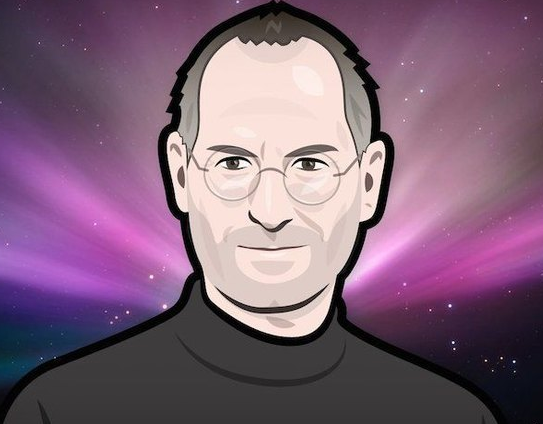These and other stories were incorporated into the mythologized story of Jobs that Perot told wherever he went.
佩羅走到哪兒都會講起這些關于喬布斯的傳奇。
At a briefing at the National Press Club in Washington,
在華盛頓的國家記者俱樂部,
he spun Jobs's life story into a Texas-size yarn about a young man so poor he couldn't afford to go to college,
他把喬布斯的人生故事夸大成一部恢弘的年輕人歷險記:他窮得上不起大學,
working in his garage at night, playing with computer chips, which was his hobby,
晚上在自己的車庫里工作,擺弄電腦芯片,這是他的愛好。
and his dad—who looks like a character out of a Norman Rockwell painting— comes in one day and said,
他的爸爸就像諾曼·洛克威爾畫中的人物,一天他走進來說:
"Steve, either make something you can sell or go get a job."
“史蒂夫,要么做些能賣的東西,要么就去找份工作。”

Sixty days later, in a wooden box that his dad made for him, the first Apple computer was created.
6天后,在父親為他做的木箱中,第一臺蘋果電腦誕生了。
And this high school graduate literally changed the world.
這個高中畢業(yè)生切切實實地改變了世界。
The one phrase that was true was the one about Paul Jobs's looking like someone in a Rockwell painting.
這段描述中唯一真實的地方就是關于保羅·喬布斯的,他確實像諾曼·洛克威爾畫中的人物。
And perhaps the last phrase, the one about Jobs changing the world.
也許最后一旬,喬布斯改變世界的那句,也是對的。
Certainly Perot believed that. Like Sculley, he saw himself in Jobs.
顯然,佩羅相信自己的故事。和斯卡利一樣,他也在喬布斯身上看到了自己。
"Steve's like me," Perot told the Washington Post's David Remnick. "We're weird in the same way. We're soul mates."
“史蒂夫跟我很像,”佩羅告訴《華盛頓郵報》的戴維·雷姆尼克,“我們一樣的古怪,我們性情相投。”











